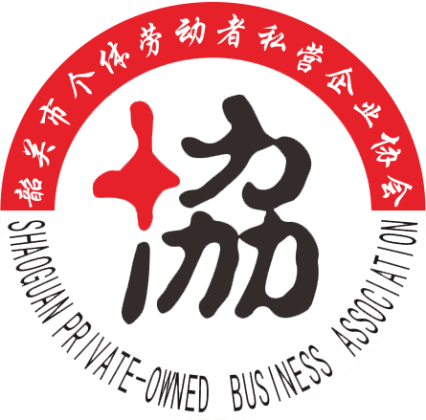Napoleon Hill wrote in his bestselling book Think and Grow Rich, “There are no limitations to the mind except those we acknowledge.”
Do you say to yourself, “I am too old/young/fat/skinny/rich/poor/educated/uneducated/white/black/gay/straight/hairy/hairless/sheep/goat to be learning a new language [or insert any formidable-sounding thing].”
Realize this kind of negative talk is self-defeating and that you are your own worst enemy.
There doesn't need to be a huge practical reason why you need to learn a language
Spoken language itself is made to be an active communicative dialogue between two or more persons. People don't speak to each other solely because it's the hot language of the month, it's a business advantage that one needs to have, it's the only way to stand out in the piles of university applications, and so forth.
If you feel like learning Mandarin, let your heart feel it, embrace it, then do it.
Let's break down learning Mandarin, shall we?
Here are the 5 ways to get you started saying, “Ni hao ma?” instead of the usual, “Sup dawg. I'm feelin' some bao zi and bubble tea now, wanna hit up Chinatown?” Though that, of course, is also useful, naturally.
1. Tones are not limiting. You are.
Mandarin, a stress-timed language, has 4 tones whereas Cantonese, a syllable-timed language, has 6. Vietnamese has 6 tones in the North, and depending on other regions, it could have just 5. The Jul-hoan language of Africa has some 30 click consonants. There are many, many more tonal languages in the world.
So in all honesty, tones are not the real problem here. Have some faith in yourself!
Even if you completely mess up on asking where the bathroom is, the locals will probably be able to decipher bits and pieces of your jumbled Mandarin, enough to point you to the hole in the ground (squat toilets) before you pee your pants and look like a fool.
The 4 tones in Mandarin are:
Tone 1: Level Tone (ping) –> —
Tone 2: Rising Tone (shang) –> /
Tone 3: Departing Tone (qu) –> V
Tone 4: Entering/Stop-Final Tone (ru) –>
So, if I write a sentence in pinyin (the official system to transcribe Chinese characters into the Roman alphabet) to say, ‘Hi, my name is Benny. You're very pretty.' I would write it as, ‘Ni3 hao3, wo3 jiao4 Benling. Ni3 hen3 piao4 liang4.' Which, by the by, you are. Don't you just love how that worked out?
Now, what this means for you is tones matter when learning how to speak Mandarin. One word in Chinese can mean completely different things when you change the tones.
For instance, a friend of mine for her first oral examination at Beijing Foreign Studies University (BFSU), wanted to tell her teacher that she went to Wangfujing Night Market and ate fried scorpions. Verdict: try it sometime. Not as scary/creepy/disgusting as you think!
Scorpion in Mandarin is xie1 zi. But she said xie2 zi, which means shoe.
After she was done with her little conversation, she noticed her teacher had a funny look on her face. She asked, “So you went to Wangfujing and ate fried shoe?”
Oops!
Tones matter. But don't be limited by them. Have a good sense of humour and take it easy on yourself when you do mess up.
2. Know your best and favourite learning medium. Then use it and be in it.
My favourite way to learn a language, and as a result, the culture itself, is to be immersed in the country where the language originates.
Mandarin is primarily spoken in mainland China as well as Taiwan (R.O.C.). You will also notice at your city's Chinatown (if you have one) that the owners and workers there will speak either Mandarin or Cantonese, usually.
What is your favourite learning medium?
Are you a classroom-textbook-contextual-teacher-student learner? Perhaps signing up for Mandarin classes at your local community college is a good option.
Are you a one-on-one private learner? Perhaps finding a tutor to speak Mandarin with is a viable option.
Are you a drop-me-on-the-Great-Wall-from-a-helicopter-and-see-if-I-survive type of person? Aka deep and immediate immersion? Then perhaps living in China (or Taiwan) is a preferred option.
You know yourself best. You also know how you learn new languages the best.
And even if you don't, try out all the various learning methods out there. See what works. It's never too late to start learning a new language in whatever medium you prefer. Never.
3. Practice, Practice, Practice!
Like with any challenges in life, it takes time and habitual practice in order to overcome immersion challenges and thrive on your success over it.
The practice of speaking Mandarin does not need to be like pulling teeth.
You can practice speaking by:
a. Hanging out with your Chinese friends and asking them to speak Chinese with you. Even a 5-minute conversation with simple greetings is better than nothing. A good friend who doesn't mind speaking with you is all you really need. Treat him/her to a simple meal or bubble tea, chat it up for a while, and if you do that enough times, you may start to realize you can speak more than you thought you could.
b. Going to Chinatown and eating at the local restaurants there. You know the ones. It's the places with menus all in Chinese and nothing is in English. Most of the patrons are Chinese folks too. These places are usually good options and have tastier, more authentic foods. Go there.
c. Watching Chinese movies or TV shows. Though I don't watch TV, this is one of the best ways to continually hear Chinese being spoken. You need to hear it, hear the proper tones, hear it in context to the storyline and in relation to the human connections being made, in order to really encompass more of the language as a whole. Just reading about Chinese won't make you start speaking it like a native. You need to hear it too.
d. Listening to Chinese songs. I listen to some of my favourite Chinese/Taiwanese artists because I think Chinese is really beautiful. You can learn a lot by listening to popular Chinese songs. On top of that, try karaoke! Don't let embarrassment of messing up or your frog-like voice prevent you from a fun evening out with a small group of friends at the local Chinese karaoke bar. It's truly entertaining and a great way to learn the language.
e. Teaching English while living in China or Taiwan. Many foreigners enjoy teaching English in these places, where they are supported by the organization or school they are teaching for, as well as taking Chinese classes all the while. This is a great way to combine immersion in the country while still supporting yourself. Various programs abound, depending on the city/province/country you want to teach at. Google ‘Teach English in China' or ‘Teach English in Taiwan' and start your research from there. On top of that, ask your friends who've done it for their opinions, experiences, thoughts about it. But don't let their views solely determine your decision to apply and go. Do it only if you want to do it.
f. Visiting and travelling throughout China or Taiwan. Absolutely fun and a wonderful way to experience the country itself, backpacking through China or Taiwan will leave you wanting more. Besides being forced to speak Mandarin (most locals do not speak English and even if they did, it can be quite broken and minimal), realize that simply by being in the local element, you are already learning, every single minute, every single day.
It's a process, not a destination. You're not aiming to speak perfect Mandarin so you can be an interpreter for the United Nations or a secret agent for the CIA (unless you really are trying for that, in which case, cool!). You're aiming to experience Chinese in all its majestic beauty, language, food, people, culture and all.
4. Never, EVER stop learning.
The moment you stop learning is the moment you start dying.
People mistake learning for what they did while in formal education. This is a short-sighted viewpoint, for learning is a daily process, a daily activity, a daily habit, a daily exploration and discovery.
Your thirst for knowledge is only secondary to what the knowledge contains. And that is, the potential POWER it has to transform your life, your world.
Learning Mandarin is no exception.
There is always room for improvement, sure. But is that all we aim for? To have absolute perfect tone, pitch, accent? Or is it to feel at one with the language? To feel comfortable speaking it, conversing with the locals?
Learn by doing. Learn by trying. Learn by making mistakes but not letting those mistakes stop you from continuing on.
Once you believe you can't do something, can't speak Mandarin without sounding like a bumbling tone-deaf idiot, once you believe in this defeating self-failure, you won't ever be able to grow, you won't ever be able to learn.
5. Empty Your Head. I Am Ready to Pour.
I am reminded of a beautiful Zen tale which I want to share with you here:
Once upon a time, there lived a Zen master named Nansen.
There also lived a professor of philosophy and he was walking wearily in his travels and came across Nansen's cottage.
Nansen invited the professor into his home and said, “Wait a little.”
The professor looked to be in a hurry, but Nansen said, “I will prepare tea for you. You look tired. Wait a little, rest a little and have a cup of tea. And then we can discuss.”
Nansen started boiling the water and at the same time looked over to the professor. While the water was boiling, he saw the professor was boiling within, too.
Not only was the teakettle making sounds as the water boiled, the professor was making more sounds within, chattering and continuously talking. The professor was preparing himself — what to ask, how to ask and from where to begin.
Nansen smiled to himself while watching the professor and thought, “This man is too full, so much so that nothing can enter him. The answer cannot be given because there is no one to receive it. The guest cannot enter into the house — there is no room.”
Out of compassion, Nansen wanted to become a guest in this professor. He knocks from everywhere but there is no door. And even if he breaks down a door, there is no room. The professor was so full, he cannot even enter within himself. He sits outside of his own being, just on the steps, unable to enter.
Nansen poured the tea into the cup. The professor became uneasy as Nansen continuously poured the tea into the cup. It was overflowing; soon, it would be spilling onto the floor.
The professor then said, “Stop! What are you doing? This cup cannot hold any more tea, not even a single drop. Are you mad? What are you doing?”
Nansen smiled at the professor and replied, “The same is the case with you. You are so alert to observe and become aware that the cup is full and cannot hold any more, why are you not so aware about your own self? You are overflowing with opinions, philosophies, doctrines, scriptures. You know too much already; I cannot give you anything. You have travelled in vain. Before coming to me you should have emptied your cup, then I could pour something into it.”
What Nansen was saying to the professor was, “Empty your head. I am ready to pour.”
Do not assume you know everything. Do not assume you know anything until you've tried things out yourself.
You learn through trial and error, through experiments, through experiencing, through self-exploration. Empty your head with preconceived notions of what learning Mandarin ought to be, so that you can fully receive.
Leave all judgments at the door. Leave all criticisms where you found them. Take up nothing from your past so that you are ready to receive in full in the present.
This is how you learn. This is how Mandarin is actually easy, rather than difficult. This is why you can and WILL do it.
I believe in you. Do you?












 2017-02-21
778
1
2017-02-21
778
1
 2017-02-21
679
0
2017-02-21
679
0
 2017-02-21
703
0
2017-02-21
703
0
 2017-02-21
708
1
2017-02-21
708
1